To ensure green production and growth, businesses still need green capital. However, many businesses still have difficulty accessing this capital for many reasons.
Green transition is expensive
At the forum "Realizing the National Strategy on Green Growth in Vietnam: Promoting Green Capital Flows", Mr. Le Hoang Lan, Chief Expert of the Department of Finance and Monetary Affairs - Ministry of Planning and Investment , said that Vietnam is currently setting very high goals, which are to reduce net carbon emissions to zero by 2050; the scale of the green economy from 6.7 billion USD in 2020 to 300 billion USD in the total national GDP by 2050.
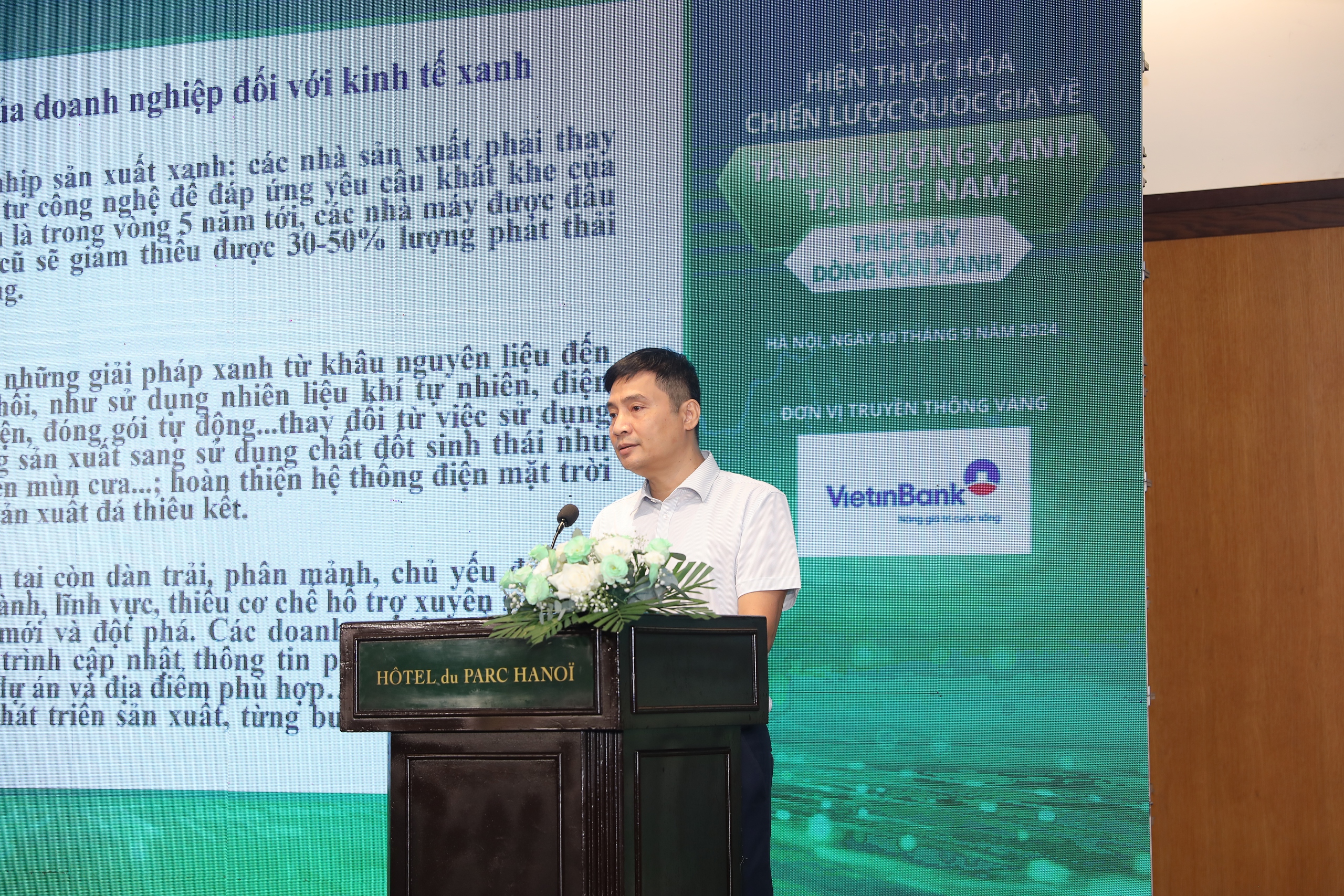
Mr. Le Hoang Lan, Chief Specialist of the Department of Finance and Currency - Ministry of Planning and Investment spoke at the forum.
To realize this goal, Vietnam needs many breakthrough steps, especially attracting the participation of the private economic sector because greening the economy is a comprehensive transformation in thinking and policy that requires a specific roadmap and fully mobilized resources.
Facing the trend of green consumption, in order to avoid being eliminated in the global supply chain, green production is becoming one of the models that many Vietnamese enterprises are aiming for. However, this is also a problem that businesses are facing many difficulties in the green transition process.
Experts say the biggest challenge for businesses is still related to capital because switching to a green trend requires a lot of costs, especially for small and medium-sized enterprises.
The main reason is that investment enterprises face difficulties in updating market analysis information, difficulty in choosing suitable projects and locations, and limitations in cooperating with state management agencies and other enterprises to coordinate the implementation of key projects.
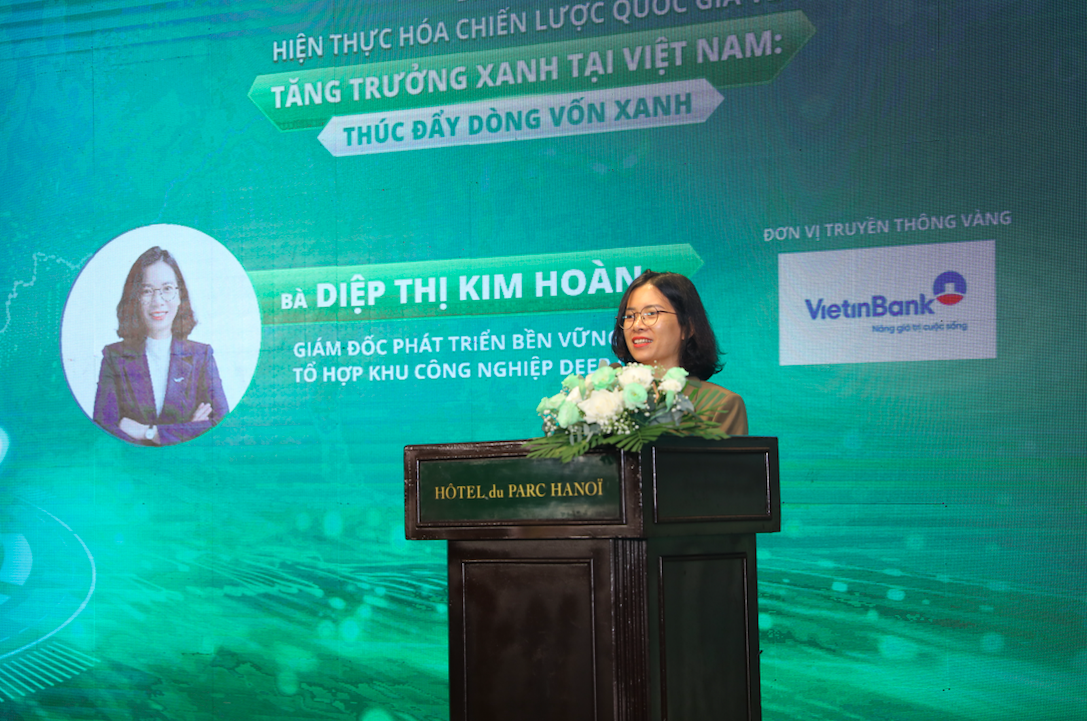
Ms. Diep Thi Kim Hoan, Director of Sustainable Development, DEEP C Industrial Park Complex shares the difficulties businesses encounter in the green growth process.
Present at the forum, from the business perspective, Ms. Diep Thi Kim Hoan, Director of Sustainable Development, DEEP C Industrial Park Complex shared the practical difficulties that businesses are facing, in which the biggest challenge for businesses today is the lack of information about green credit providers, especially for small and medium enterprises.
In addition, financial costs are high: interest rates, guarantee fees, application processing fees; green project criteria are not specific, clear, and different between credit institutions; some green credit funds often do not accept collateral; small-scale projects (
Green development is not only an economic issue but also a social issue.
Based on the practical difficulties, Ms. Hoan proposed a solution: it is necessary to develop a legal framework with clear criteria for evaluating green projects, and have financial support policies for small and medium enterprises such as preferential interest rates, extended debt repayment periods, credit guarantees for green projects, and simple procedures.
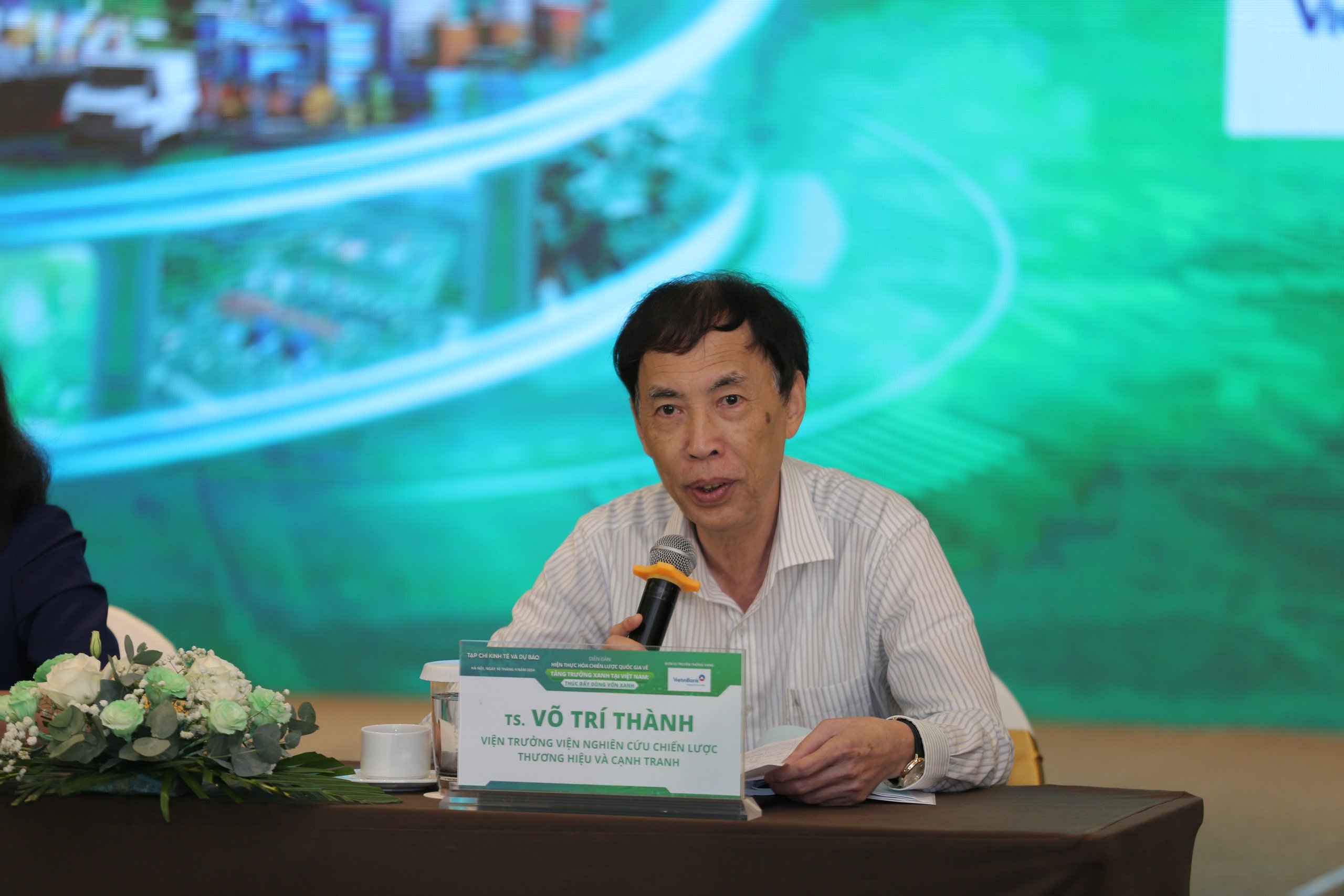
Dr. Vo Chi Thanh emphasized legal issues at the forum.
Also on the legal issue, Dr. Vo Chi Thanh, Director of the Institute for Brand Strategy and Competition , shared that in fact, Vietnam is always considered one of the countries with the largest amount of plastic waste in the world . Vietnam has also had plans to improve and collect a lot of plastic waste from many workers, mainly women. This contributes to protecting the environment and reducing waste to the environment.
Based on the above evidence, he emphasized that the story of green development is not only an economic issue but also a social issue, therefore, legal issues need to be focused on and concerned to help the socio-economic sector move towards green development in a transparent and effective manner.
Sharing the same view, Dr. Can Van Luc, Chief Economist of BIDV, said that one of the most important solutions is to focus on the legal framework, update credit criteria to assess environmental, social and governance impacts based on the Green Portfolio. In addition, it is necessary to focus on building a refinancing fund, a dedicated appraisal handbook for green credit; raise awareness, train staff in the fields of renewable energy, green production and consumption;...
Another issue proposed by Ms. Hoan from the business side is the need to create a green investment fund to provide financial support for projects of small and medium enterprises, especially in areas such as renewable energy, waste management, and natural-based infrastructure.
Sharing about this proposal, Mr. Quan Duc Hoang, Member of the Board of Directors of Amber Fund Management Company, Chairman of A+ Investment Fund , said that in order to connect and receive investment from funds, businesses also need to clearly understand the green criteria of their industry before looking for green financial funds, clearly define the development roadmap as well as the needs of the business, and carefully study the regulations and criteria of the funds before cooperating.
Source: https://phunuvietnam.vn/doanh-nghiep-chua-tiep-can-duoc-tin-dung-tang-truong-xanh-2024091020353014.htm


![[Photo] Hanoi morning of October 1: Prolonged flooding, people wade to work](https://vphoto.vietnam.vn/thumb/1200x675/vietnam/resource/IMAGE/2025/10/1/189be28938e3493fa26b2938efa2059e)


![[Photo] President of the Cuban National Assembly visits President Ho Chi Minh's Mausoleum](https://vphoto.vietnam.vn/thumb/1200x675/vietnam/resource/IMAGE/2025/10/1/39f1142310fc4dae9e3de4fcc9ac2ed0)

![[Photo] Keep your warehouse safe in all situations](https://vphoto.vietnam.vn/thumb/1200x675/vietnam/resource/IMAGE/2025/10/1/3eb4eceafe68497989865e7faa4e4d0e)
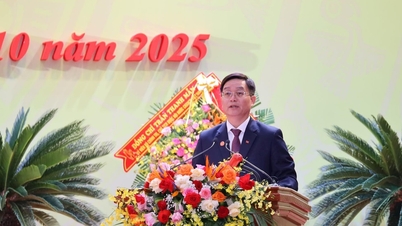

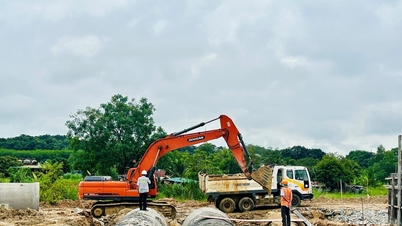






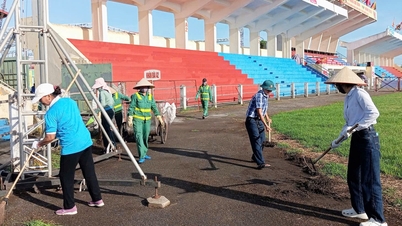

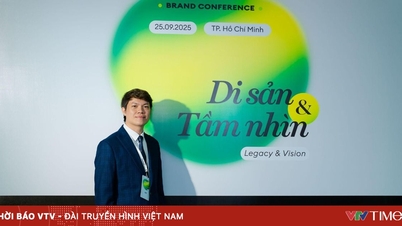
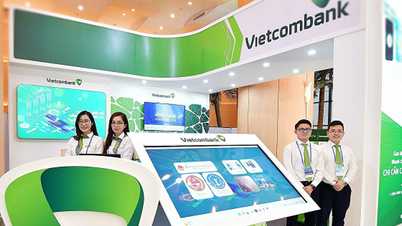


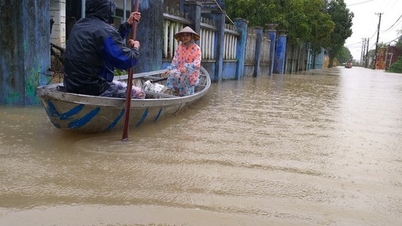


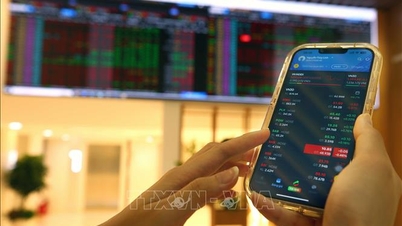










































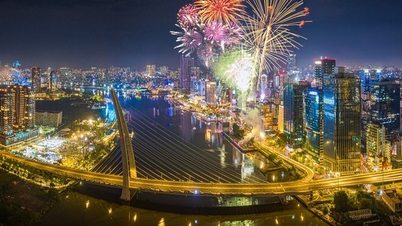






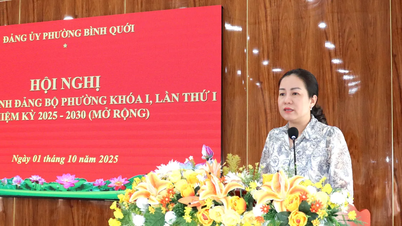

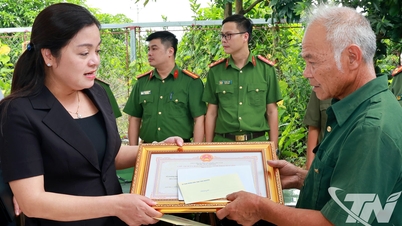



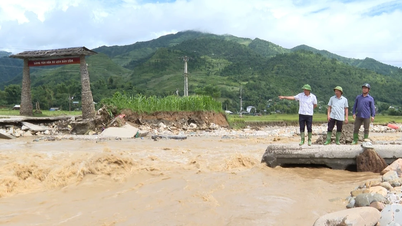

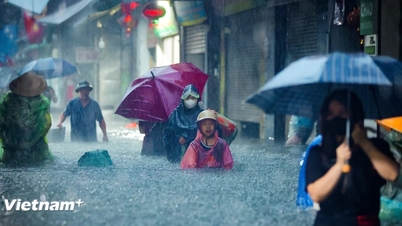
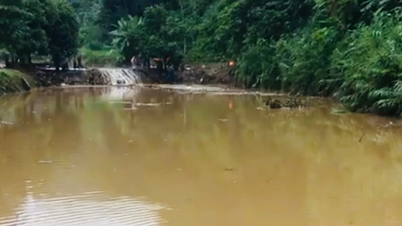














Comment (0)